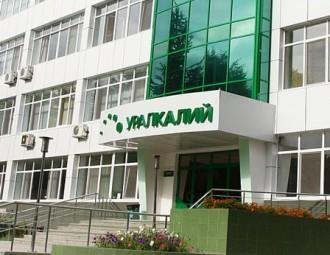“Uralkalij” says the arrests of its executives are politically motivated

Russian potash company made yet another statement in regard with the criminal proceedings which were begun against the workers of the company.
Let us recall that on August 26 Prosecutor General's Office has begun criminal proceedings against a number of members of the “Belarusian Potash Company” supervisory board, including Uralkalij CEO Vladislav Baumgertner. The Belarusan investigatory committee has also issued a warrant for Suleiman Kerimov, the key shareholder of Uralkalij, who has been officially charged with power abuse, with the maximum punishment is up to 10 years in prison with property confiscation.
On August 30 Yury Ushakov, Russian presidential aide, demanded the "immediate release" of Vladislav Baumgertner. As the news agency “RIA Novosti” reports, Uralkalij has asked the Russian government to make Belarus stop what the company on Tuesday, August 3, called “politically motivated persecution” of Uralkalij executives. “The company believes it is necessary to once again reject all accusations brought against it by the Belarusian side,” Uralkalij, said in a statement. Uralkalij “has asked the relevant Russian agencies for assistance in immediately terminating politically motivated persecution of Uralkalij employees.” It characterized Belarus’ actions as “an attempt to use ... its law enforcement system as a means to inflict damage upon Uralkalij as the key rival to state company Belaruskalij.”
Charges brought against Russian businessmen got broad critical responses. Thus, Alexander Voloshin, the chairman of Uralkalij’s board of directors, has described the arrest of Baumgertner as “outrageous” and the charges against him as “absurd.” Igor Shuvalov, Russian First Deputy Prime Minister, said that the situation around Baumgertner was “rather strange.” President Vladimir Putin’s spokesman, Dmitry Peskov, on August 2 said that the charges against Kerimov, who is also a senator in Russia's upper house of parliament, needed to be fleshed out. Russian Deputy Prime Minister Arkady Dvorkovich also said that Russia may change its mind on a number of issues of bilateral cooperation with Belarus because of the recent arrests.
Piotr Prakapovich, Belarusan deputy prime minister, predicts that it will take potash giant Belaruskalij two to four months to recover from the collapse of its trade cartel with Russia’s Uralkalij. He expressed certainty that the state-owned company would manage to restore its exports to the normal level in the period. “I am certain that soon we will have the same volumes of sales as before or even larger ones. Nothing has changed in the world; they bought potash and will continue buying it as it is key to securing a decent level of foodstuffs,” BelaPAN quoted him saying.
The deputy prime minister also warned against politicizing the cartel break-up. “These are ordinary relations between two economic entities. They used to work together and have now parted. Well, now they will go their separate ways. There are enough of such examples. There is no and can be no politics here,” he said.
Belaruskalij is reducing its output of potash and decreasing the wages of its employees by one-third, a deputy director general said last week. Belaruskalij's output exceeds the demand, he explained, adding that the company was using only two of its four mines at the moment. Belaruskalij exported $1,380 million worth of potash in the first seven months of 2013, 23.5 percent less than in the same period of the previous year. In terms of volume, the exports remained unchanged at 4.9 million tons.
However, Valery Kiriyenko, “Belaruskalij” CEO, gives optimistic forecast, saying that Belarusian Potash Company may soon become a leader among potash traders. He also stressed that it is necessary to restore the potash industry, which was disrupted by Uralkalij's statements, and forget the "scandal" that broke out a month ago. Belaruskalij director general accused Uralkalij of abandoning the principle it had "constantly forced upon BPC," namely, that "price is above everything else." He said that Uralkalij's lack of consistency had come to him as a greater shock than its decision to exit its cartel with Belaruskalij.
-
03.01
-
07.10
-
22.09
-
17.08
-
12.08
-
30.09










































